999 is a 2023 documentary by Lubna Playoust in which eighteen contemporary directors, gathered in in Cannes for the festival, respond one at a time, in the same hotel room, to the same camera set at the same angle, to a series of questions about the real or imagined death of cinema. It’s a sequel of sorts to 666, a 1982 film in which Wim Wenders did the same thing with different directors. (Wenders gets to be the first responder in 999.) While a few directors, most notably David Cronenberg, argue that the rumors of cinema’s death are greatly exaggerated, most of them talk about what’s been lost in our era of streaming and the threat of AI. Some, like Olivier Assayas and Paolo Sorrentino, bring up great points about the ways in which the increased scale of production crowds out the chance for original work and how having astronomical budgets, which allow a director to make anything happen on a screen, paradoxically make them less free to take artistic chances. Others lament that distributors flatten the variety and quality of what ends up on a screen: “Even though we have the possibility to distribute all over the world,” Reuben Östlund says, “I actually think that the expression gets narrower and narrower.” Pietro Marcello complains, “All that remains is merchandise” and Cristian Mungu has one of the most provocative responses in which he argues that there’s too much cinema now and that artists should spend more time watching what came before they were born and less time rushing to create “content.” A few directors are pretentious and one (Kirill Serebrennikov) simply changes his shirt and does a dance routine, saying nothing, which is a welcome laugh in a downbeat film. The monologues are arranged so that they contradict and compliment each other; the effect is that we watch directors talk to each other without their being in the same room.
But I don’t want to talk about the engaging moments that made me think about movies as a language or the ways in which they may be changing in ways we can’t anticipate, as things did for the Lumière brothers or Georges Méliès. I want to talk about the ones that got me thinking as they simultaneously made me shake my head, roll my eyes, and think, “No, no, no no.” I refer here to those directors bemoaning the death of the romanticized “communal experience” that some say makes the cinema—the actual place—so special and how the “death of cinema” is seen in the reluctance of moviegoers to get off their couches.
Here’s Asghar Farhadi, the Iranian writer and director of The Salesman:
To me, cinema is not just about viewing. The thing that I grew up with and that I miss, is the fact that you had to decide to go out, walk, get out of the cab, change cars, stand in line, buy a ticket, purchase some snacks, and find a seat in the movie theater along with hundreds of other people. We laugh or are silent together. We watch the movie, leave the theater, and discuss it together. When we go home at night, we talk about it with those who saw it. It’s like a journey, a ritual we all share. And today, this aspect of cinema no longer interests the new generation. There is no longer that need. … If someone can watch a film at home, they will. I don’t like that. The ritual of going to a movie theatre has disappeared.
He blames the end of the ritual partly on the speed of contemporary life, but his claim that we are “silent together” made me prick up my ears and wonder where he goes to the movies. Who among us hasn’t looked forward to a film, only to have the experience ruined, or at least dampened, by some idiot unable to simply remain quiet for our time in the dark? Even at big AMC theaters, where the seats are spaced far from each other, you can still hear people blabbing—and if you say anything, you wonder for the rest of the movie if the person will be waiting for you in the lobby to start a fistfight.
When I saw Mission Impossible: Dead Reckoning, I splurged to see it in a Dolby theater. The effect of the sound and screen were undercut by a crying infant. Imagine the parent who would risk an infant’s permanent hearing loss in a movie that long and that loud: when the baby cried, we could all hear it above the sounds of Tom Cruise saving the world. When I told the manager and asked if there were such a thing as a minimum age for all movies (like 17 for R), I was told that they couldn’t prevent someone from bringing an infant because to do so would be “discriminatory.” The baby might be waiting for the manager in the lobby.
Like other directors in 999, Farhadi comes down against streaming services, but these are only as bad as the taste of their subscribers. What lover of film doesn’t enjoy the Criterion Channel? For $100 a year, it will teach anybody with an internet connection more about movies than $50,000 of film school. What could be better than reading about a film you’ve never seen and then being able to watch it as soon as you like? (Even in the wasteland of Netflix there’s probably something worth seeing, if you can find your way past endless serial-killer documentaries.) Streaming succeeds because theaters relinquished their monopoly by never caring about the experience of their patrons. We live in an age in which everyone is terrified of “offending” someone else, and the theaters never wanted to offend those who wanted to ruin a movie for other people. #TheRudeHaveRights!
Here’s the French director Agnès Jaoui: “Being in a room with a lot of people is different from being alone. I think people have a desire, a need, to gather. Because it’s a different experience.” Being a director and sitting in the back of a theater in which hundreds of people are watching The Taste of Others in rapt silence must be great, but the “different experience” too many of us get is the person behind us asking, “Wait—so she’s in love with him? What? What did he say?”
When I go to the movies, I spend the entire lead-up to the feature looking around and hoping that the people around me will be quiet. I look at how they’re acting and wonder if I should to change my seat. There’s also that terrible feeling when two people sit behind me and start yapping and I start praying to Zeus that they’ll stop when the lights go out. I did find a great solution: I keep a pair of cheap earbuds in my car and plug them into the assistive listening device offered by the theater. If anyone talks, I drown them out. But I shouldn't need to resort to such measures. Nicole Kidman reminds us (in yet another reason why people dislike going to the theater) that “we come to this place for magic,” but too often, other people won’t shut up so you can hear the magician.
And there’s a long ramp-up before we even get to her. People have grown exhausted by how much they need to watch before the movie. A trailer or two? Fine. A reminder that we can visit the snack bar, as if we have never, ever been to a movie theater? Sure. But after six trailers all of which increase in volume UNTIL THEY ARE VERY LOUD AND THEN—become silent. Then we get the ads for Fathom Events and whatever else the theater is hawking. We also might be asked to endure Maria Menounos’s Noovie, an excruciatingly fake call for fun as awful as its title that encourages people to take out their phones to answer trivia questions—and reminds us to come earlier next time for “more content.” We then get the announcement to not talk and silence our phones, but anyone who talks or texts during a movie isn’t interested in basic reminders of courtesy. That announcement is like when a bad teacher punishes a whole class because he’s too afraid of addressing the real troublemakers.
There’s also an odd assumption among some of the directors in Room 999 that a crowd of viewers actually contributes to the experience of the individual. Baz Lurhman argues that the in-theatre community defines the cinematic experience: “For what is cinema,” he asks, “but strangers coming together in a dark room and looking up at a screen at whatever they see and being united?” I’ve never understood other people as a force multiplier of the pleasure I get from watching a movie. As a kid, I was bothered, without really knowing why, by the laugh track on The Flintstones. I didn’t know what a laugh track was or why they were used. The laughs on The Brady Bunch and The Munsters made sense: maybe they let people watch them make the show? But who was watching The Flintstones? Were they showing the cartoon to people and recording their laughter? And why wasn’t I ever laughing as hard as they were? I understand the desire to talk about movies after we see them: I’ve been co-host of a movie podcast for five years and remember a funny conversation I had with a little (and quiet) old lady who sat near me at a screening of The Godfather and who said, when it was over, “That was incredible! I heard about this movie my whole life but never saw it until today.” But I don’t become more afraid by Hereditary if the people next to me are frightened or feel more adrenaline watching Raiders of the Lost Ark because the people behind me see the same rolling boulder. When I saw Nosferatu, nobody made a peep the whole time—it was great. But that didn’t make me like the movie any more than I do. It’s not a sporting event; did people high-five each other when they first heard Evelyn Mulwray say, “She’s my sister” or when Darth Vader said, “I am your father?”
The Australian director Shannon Murphy provides a dose of sense to her colleagues:
“If you are ever trying to craft work based upon the fact that people are distracted these days … I mean It’s quite horrifying when you go to the cinema and people are on their phones … When they get bored they start playing on social media or the fact that, you know, when people are watching television, half the time they’re looking at their phones. This for me is the biggest problem we have at the moment. I think that’s what’s ruining, sort of, television—which could be an incredible medium, and cinematic in many ways, but the fact that you're often sometimes given notes that are about, ‘But what if people are doing lots of things at once? How do you hold their attention?’ That’s what cinema does so specifically: you go somewhere, you’re in a dark room, there’s laser focus on one thing—I mean, phones should just be banned from ever being in the cinema, like you should actually just be kicked out. There should be someone watching and you should be thrown out if you’re on your phone.”
Her frustration (and mine) explains the rise of Alamo Drafthouse, which has a famous set of rules that (I’ve been told) they actually enforce. Hitchcock did the same thing: when Psycho was released in 1960, he demanded that no one would be admitted late and got his way.
I’ve ben talking about AMC, Regal, and other big chains, but even arthouses are not immune from bad actors. At my local and wonderful member-supported theater, everyone usually behaves. It’s a great place and people police each other: when I saw A Complete Unknown there, a woman down front pulled out her phone to casually surf the web and three or four people yelled, “TURN OFF YOUR PHONE” as loud as the folkies yelled “JUDAS” at Newport. The usual “No talking or texting” announcement is cleverly grafted onto a clip of Max Von Sydow talking to Death; these people generally aren’t the same ones who sit near me at AMC. But I attended a packed screening of Jaws there at which the guy behind me would begin giggling and saying, “Uh-oh!” every time the shark was about to appear. When I saw The Apartment, the guy to my right wore an Apple watch that lit up every time he got a text or moved his arm; I had to watch the movie with my right hand working as a visor so I wouldn’t see it. And when I finally saw The Seven Year Itch, a woman near me would go, “Um hmmmm” every time Marilyn Monroe walked into a room. (That movie is awful, but I wanted to experience its awfulness in peace.)
That I remember these specific events shows how deeply they irritate me.
Theaters are special places—or can be. If anything is killing cinema, it’s the behavior of the audience, which ruins any chance of this mystically connecting with other people. Attending an AMC or end-of-the-mall theater has become like flying: you go into it with enthusiasm but it sometimes devolves into a depressing contempt of your fellow man. Buying a ticket for Frontier or Fargo can become Samuel Johnson’s triumph of hope over experience. Who wouldn’t—in our era of streaming, outrageous ticket prices, and affordable big-screen TVs—think twice before rolling the dice?
Theaters have become, alas, like other public spaces. At my local library, patrons and personnel no longer even pretend to whisper, but talk as freely and as loudly as I do after three Manhattans. Many people have stopped using headphones, inflicting upon the world whatever inane video they are watching as they sit right next to us at the airport, in the dentist’s waiting room, or one bench over in the park.
I’m going to see The Return tonight. Wish me luck.
[Postscript: I saw The Return. The audience was far better than the film. Granted, this was an audience in a college town at an independent cinema watching an adaptation of the end of The Odyssey—which probably made all the difference.]



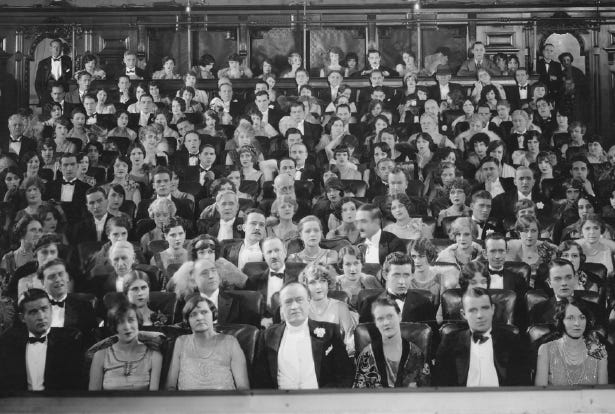
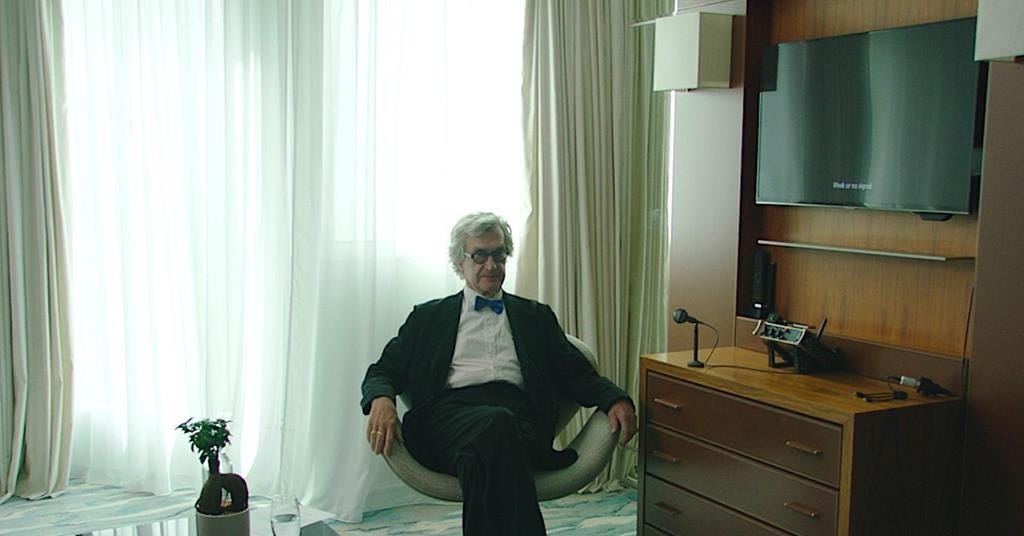
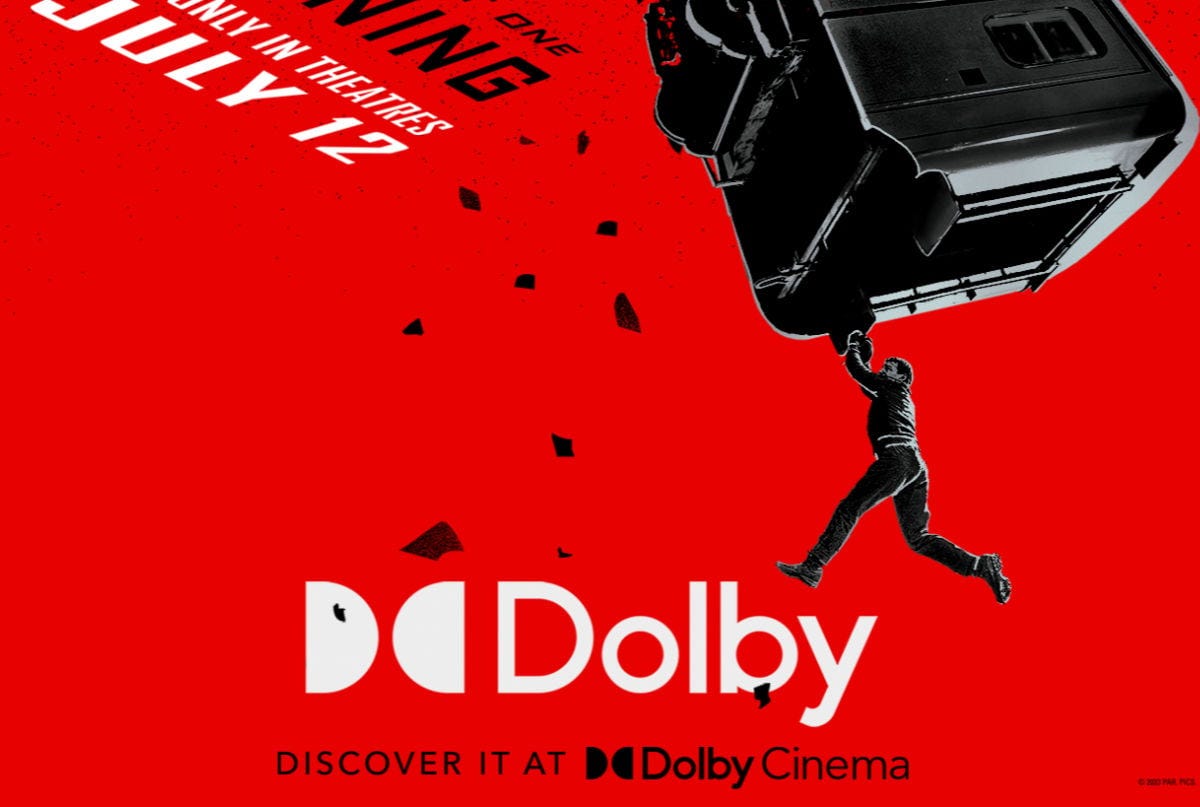

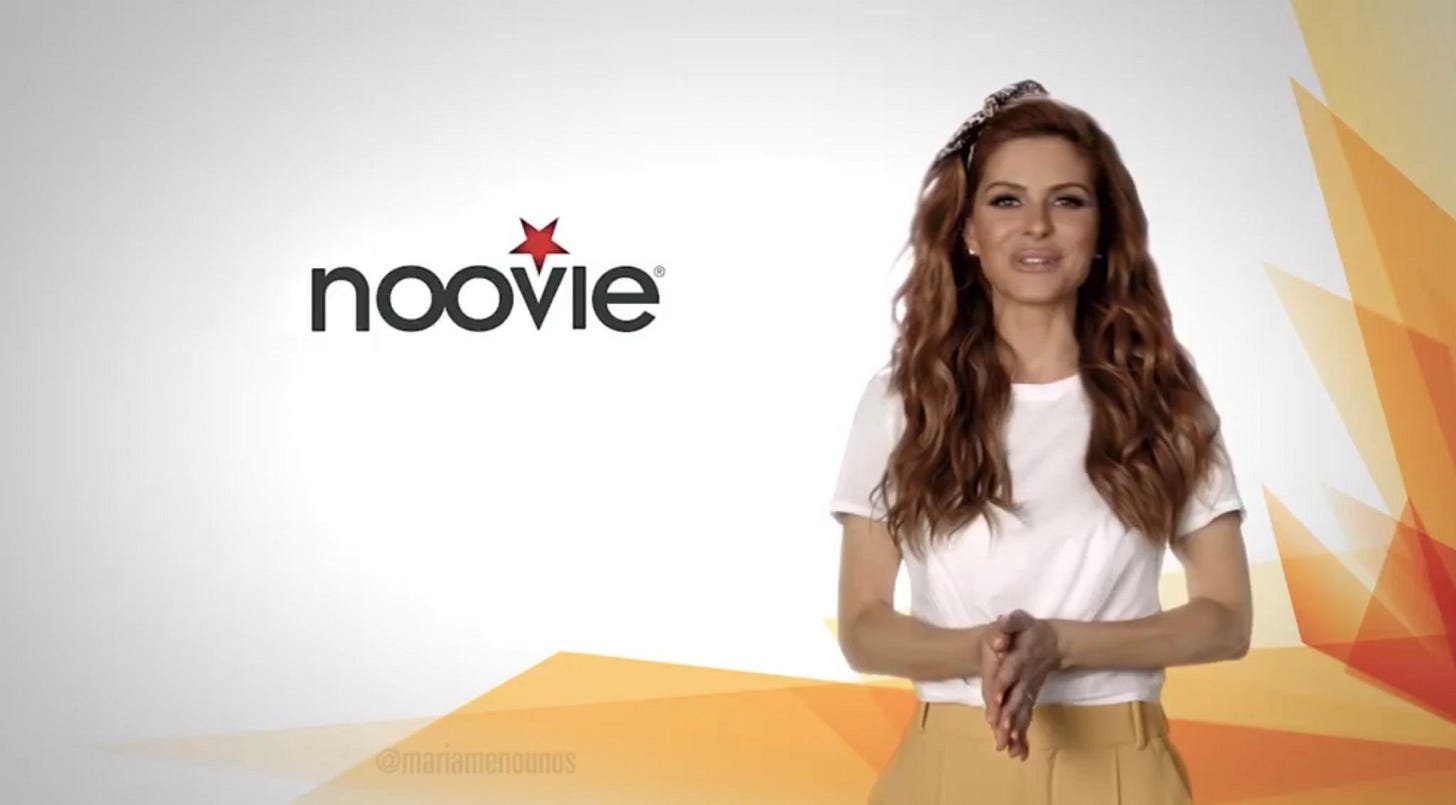
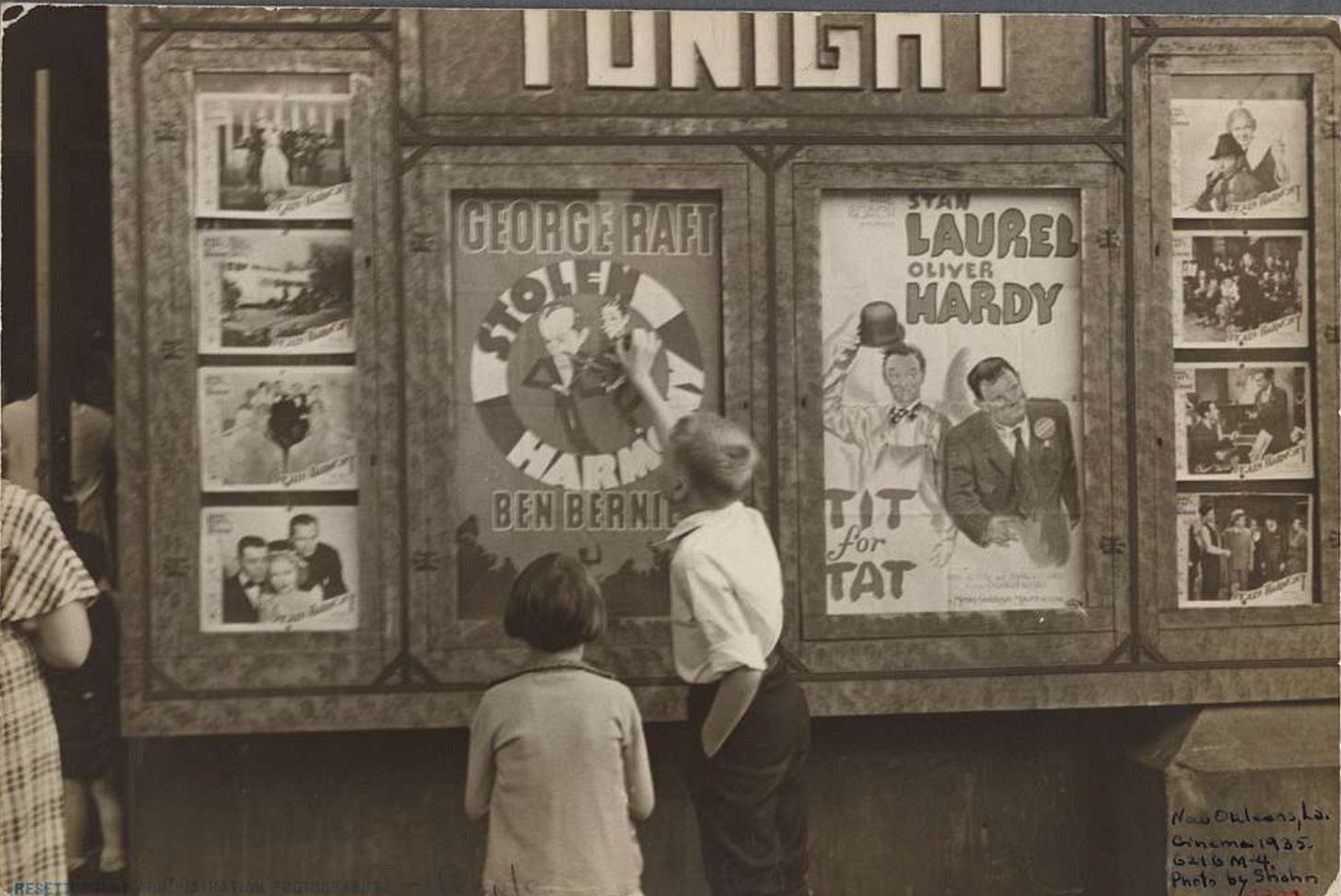

Cinema is better for me because of the size of the screen, the better sound system and fact that I'll be largely distraction free for the entire length. It's why 10 am Tuesday morning screenings are perfect.
I dunno, I like gasps and laughter. Or my mom screaming during any jumpscare no matter how obviously telegraphed.
Similar to the first commenter I gravitate towards weekday matinees, but I’d say for me that’s more convenience (and those sweet sweet prices) than cinema agoraphobia. I’d also admit that I have rarely actually experienced the stereotypical bad moviegoers.
I’m still getting used to the assigned seating that started post COVID for non-IMAX movies, but it has made it much easier to time my entry and skip Ms. Menounos. That’s really the main reason I love empty theaters is that I absolutely hate the surcharge for buying tickets on my phone and therefore always prefer buying in person. And there’s always plenty of seats to choose from Tuesday at 10am, ten minutes after the listed showtime and ten minutes before the feature starts.